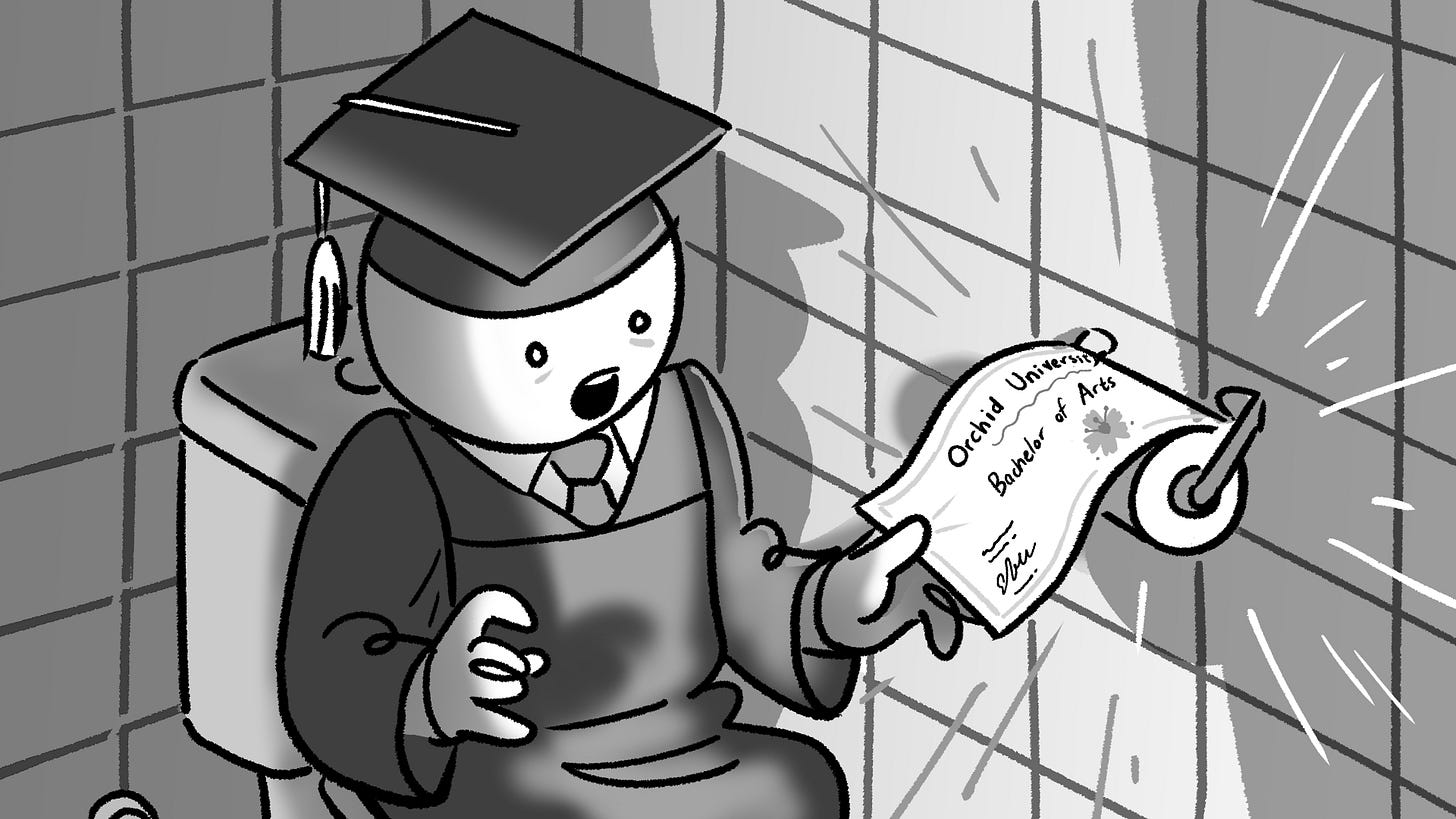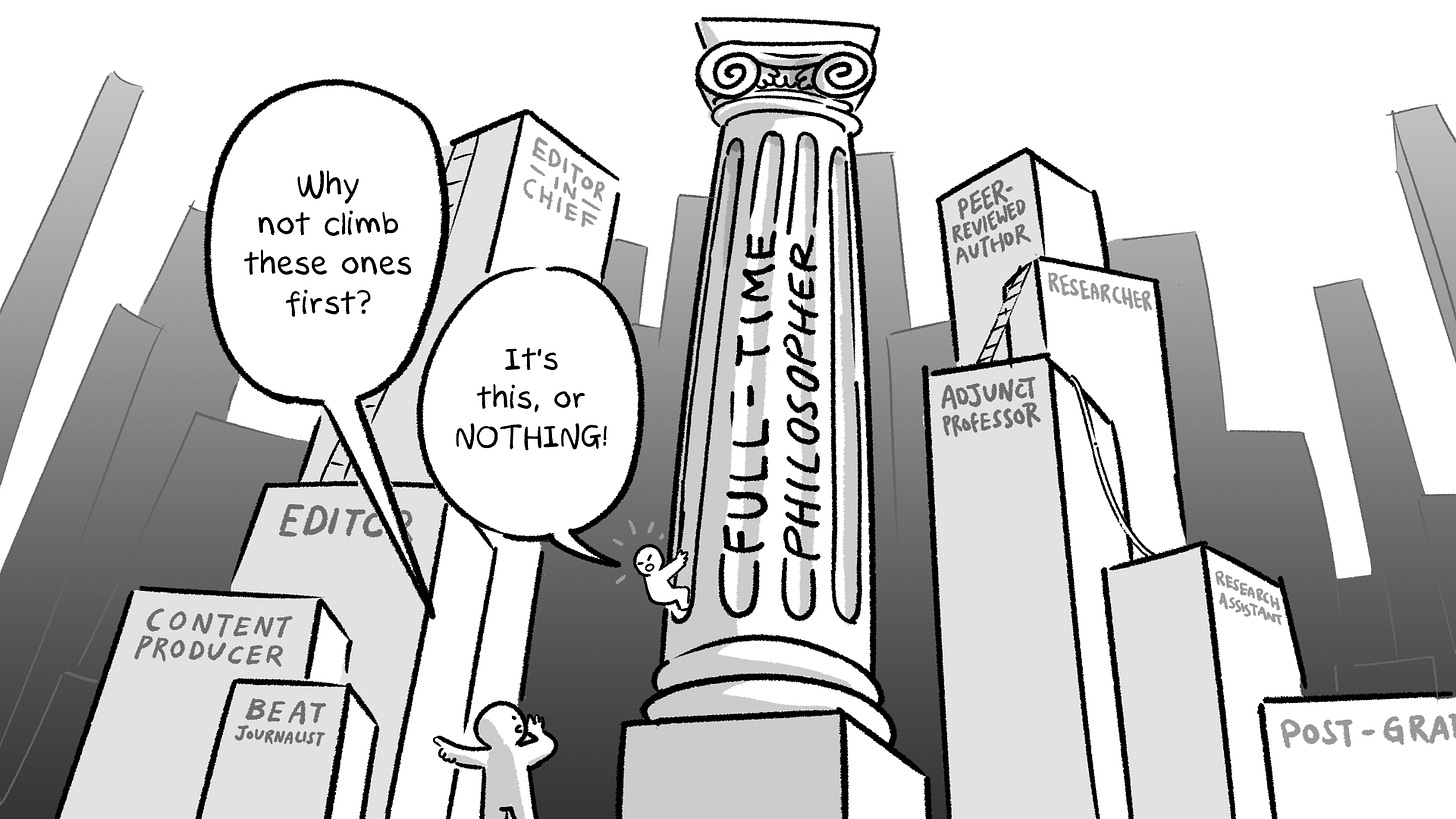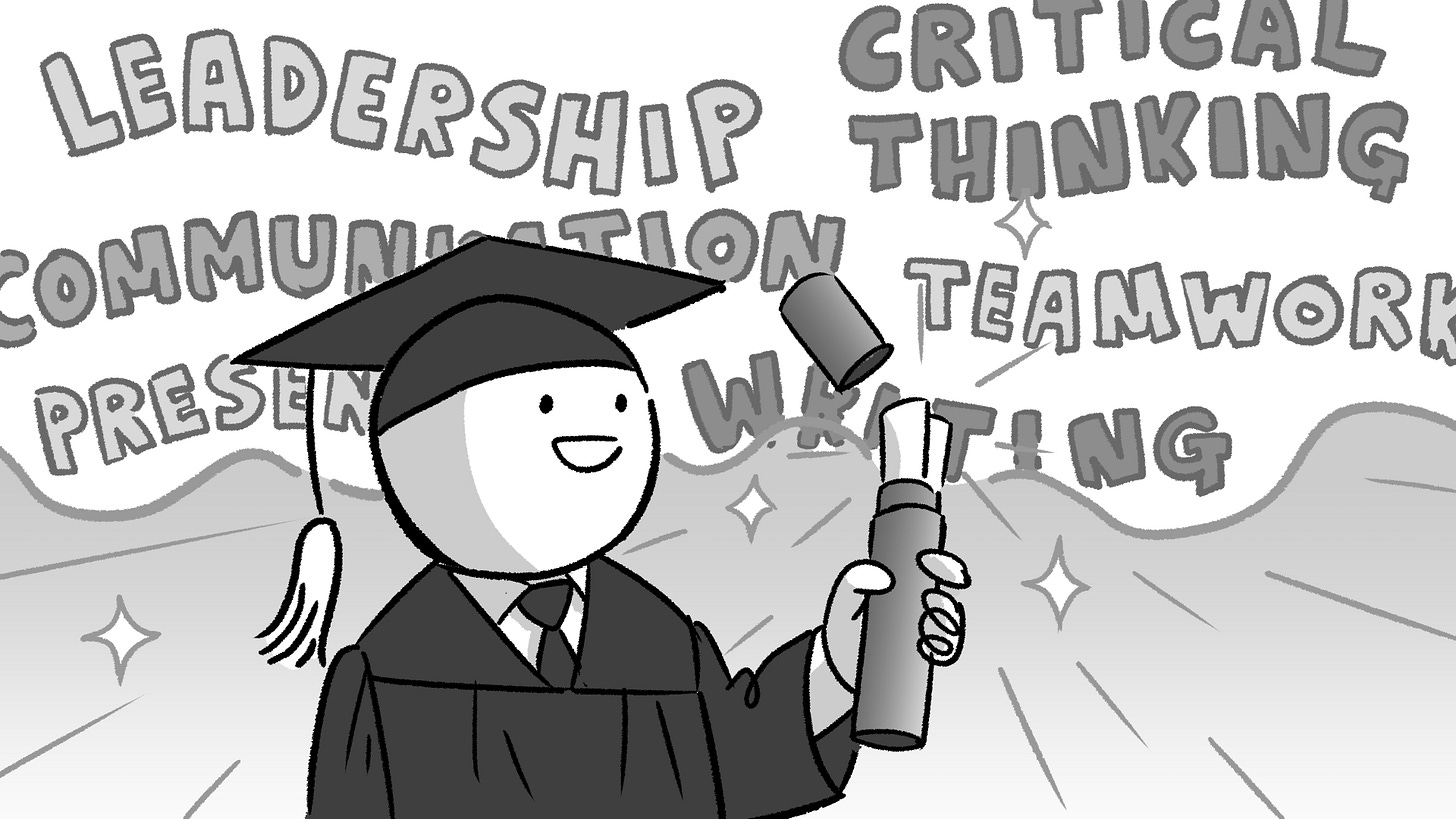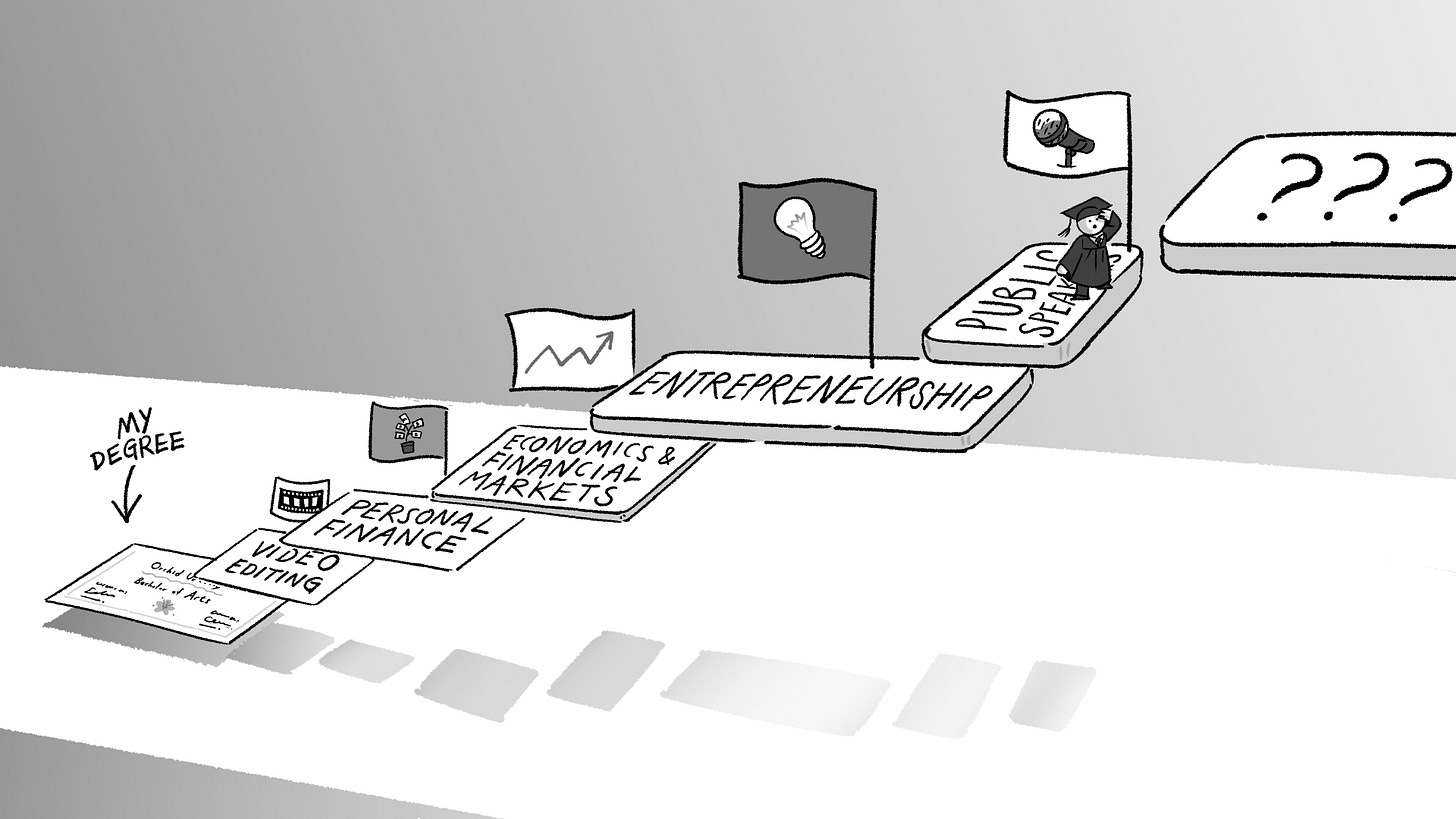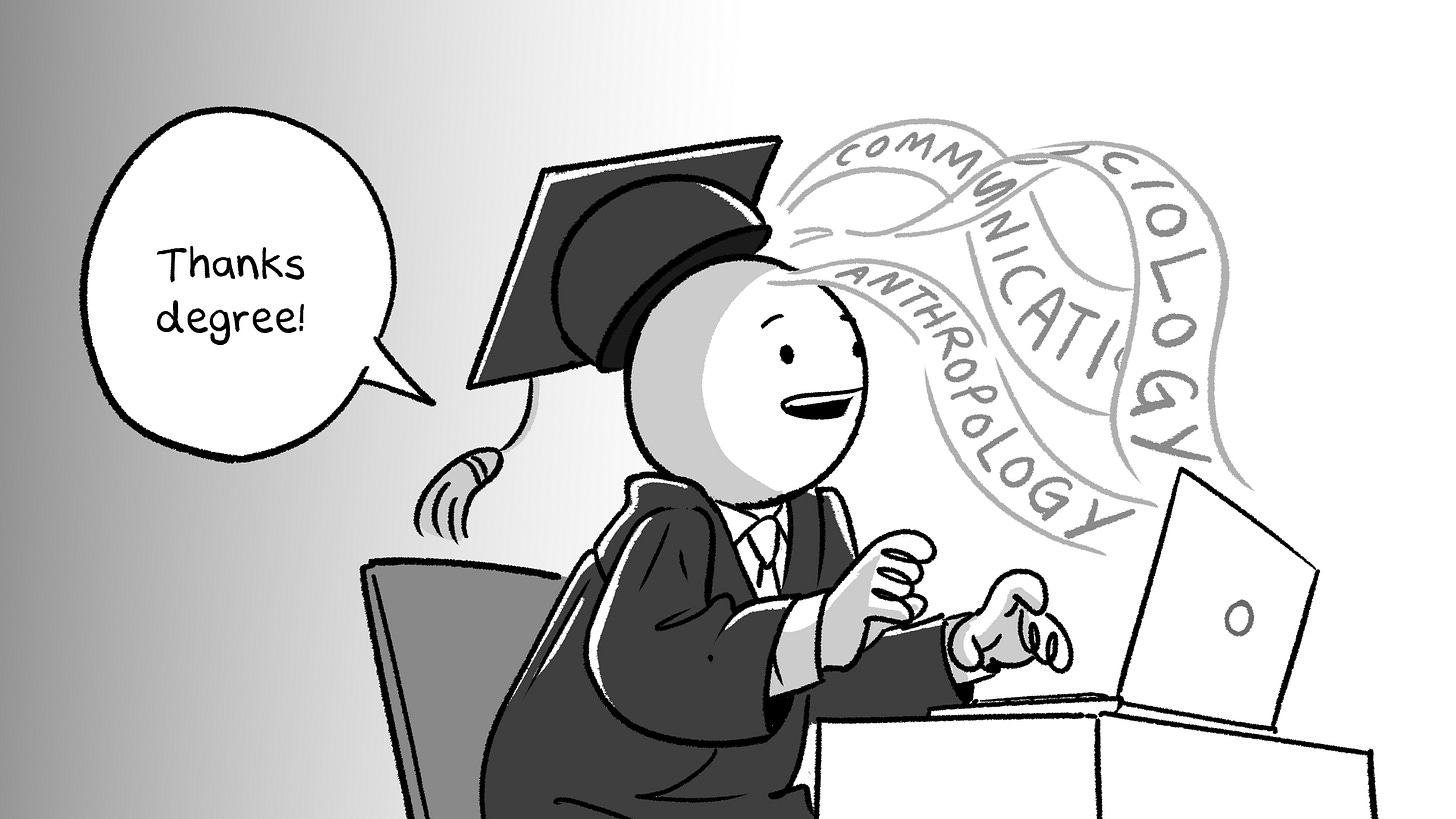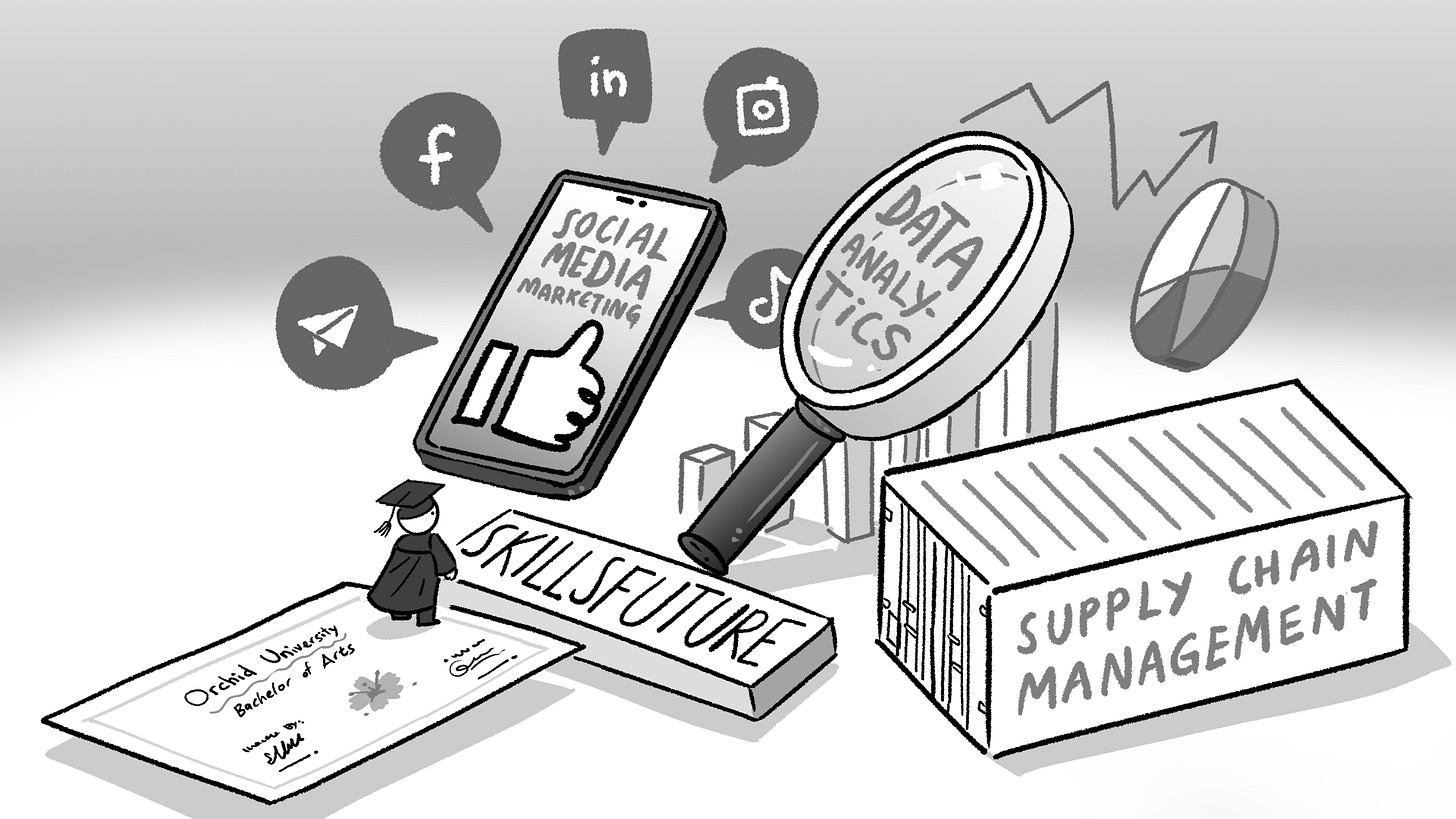No, your arts degree isn’t actually useless
Contrary to what some might say, it’s not just for wiping your backside
DISCLAIMER: THIS POST IS BROUGHT TO YOU BY GOV.SG. DO NOT PROCEED IF YOU DON’T LIKE SPONSORED CONTENT.
The year is 2010. I’m at a Chinese New Year’s Reunion dinner with relatives I only meet once a year. One of the uncles — one of those maverick engineering types in his 50s — asks me what I’m going to study in university.
Excitedly, I answer:
“Communications, and maybe something else like Sociology and Psychology.”
To my horror, my uncle scoffs in front of the whole table.
“For what?
This type of degree is useless one. Waste time and money I tell you, your parents work so hard, you better study something better.”
I feel a mix of anxiety, embarrassment and shame. I keep my mouth shut for the rest of the night. (And they wonder why young people don’t like to talk much during CNY).
For a long time, my uncle’s words haunted me.
But nothing hit harder than when I finally graduated in 2014, with a humanities degree, majoring in Communications and Criminology.
My starting salary as a fresh grad then was $2,700 a month. In contrast, my peers in finance and law were earning double: up to $5,400 a month.
Perhaps he was right after all.
Maybe an arts degree* is really only good for ‘wiping your backside’.
But 11 years later, I can confidently say that my uncle was wrong.
Here’s the game you need to play if you’ve graduated with what you might think is a useless degree.
*For brevity, we will refer to all Arts and Humanities degrees as just ‘arts degrees’.
You cannot afford to be a purist
Realistically speaking, you will have very limited options if you decide to be a purist and make your whole degree your professional identity.
So if you studied economics, don’t expect to be an economist. Same for Philosophy, Political Science, Psychology, Sociology. You get the idea. There are simply very limited roles for these. (We searched ‘Philosopher’ on several job portals and nothing came up.)
What this means is that there’s a very real chance you’ll do something outside your field of study.
Does that mean your degree is wasted? Well, that really depends on you.
Which brings us to the next point.
Count on your transferable skills
Yes, you probably will not be able to apply sociological or psychological theories in your first few roles but many of the skills gained in university can be carried over into the workplace.
Listing a few from my own experience:
If you can write a kickass essay, chances are you won’t be helpless if you need to write at work, whether it’s a report, opinion piece or emails arguing from your team’s perspective.
Communication concepts such as ‘KISS’ (Keep it Simple, Stupid) are not immediately apparent to people.
It takes time and practice, but if you’ve made presentations and had to defend your ideas during university, then the same skills will come in useful during professional presentations.
If you’ve experienced working with a team during FYP (Final Year Project), that should give you a primer for working with people. Interpersonal skills do not sound like much, but they can make or break your career at every level.
Finally, in today’s digital age of misinformation, being able to read critically and be media literate — skills that tend to be more emphasised in arts and humanities degrees — will be ever more crucial.
Learning and upskilling will be absolutely necessary
One criticism of arts degrees is that they’re often ‘generic’; the focus of many arts degrees does not always translate directly into specific technical skills that are in immediate demand in the job market.
But none of this means you can’t learn technical skills on the job, or learn stuff outside university after you’ve graduated (regardless of what degree you graduated with, btw).
In my own journey, I picked up a combination of hard and soft skills after graduating. Here’s what worked well for me (yours might look different cos everyone is different, or you started your journey in a different time).
Video editing. I was working at a news website in 2016, and short-form news videos were becoming the next big thing. My ability to produce these videos helped me stand out in a team of senior writers that couldn’t.
Being interested in personal finance started as a necessity in my own financial journey, but eventually, becoming well-versed in financial concepts and instruments gave me an edge over other creative professionals, especially when working with banks and insurers. Back in the early 2010s, personal finance was a niche field that no one really paid attention to. Sometimes, it pays to learn stuff even if people seemingly don’t care about it.
Taking courses online about economics and financial markets gave me a broader understanding of money after we started this page, allowing us to think beyond the typical basic saving/budgeting/investing topics.
Public speaking was something I used to be terrified about, but managed to overcome in recent years out of sheer necessity. Today at The Woke Salaryman, we're regularly invited for talks to share our thoughts on personal finance and running our own company, so this was a skill I had to pick up quickly.
Last but not least, entrepreneurship wasn’t something I ever thought I’d do, but something I naturally arrived at after combining my skillsets from communications, marketing, finance and economics.
Of course, learning these skills often took extra time and effort after work. And sometimes I had to pay out of pocket. But I’m glad I learnt these skills to complement my degree. The good news is that compared to when I graduated in 2013, it’s a lot easier now to learn and pick up new skills through upskilling courses; as well as get financial support from government initiatives.
Nothing learnt is ever wasted
Remember what we said about not applying any of the theories we learnt in school? That’s not 100% true either.
One of the most valuable lessons I learned from my arts degree is the inherent complexity of the world. Studying various theories, each with its own strengths and limitations, taught me to approach reality with a critical and nuanced perspective.
For example, in criminology, you delve into the complexities of crime itself, questioning the very definition of what constitutes a crime — a concept that can vary significantly across societies and throughout history.
Similarly, when you explore the root causes of criminal behaviour, you recognise that they are multifaceted and often intertwined with social, economic, and psychological factors. And that things are not as simple as they seem.
So I’m glad I did my arts degree — because we’ve applied much of the same approach when developing content for The Woke Salaryman that tries to challenge conventional ideas about money.
Here are some of them:
A final word
Early in your career, it’s easy to compare yourself to peers who seem to have mastered technical tools, like coding or financial modelling, and feel like you’re falling behind.
Their skills can appear more immediately "valuable" because they’re measurable, and directly and immediately applicable to certain industries.
But over time, I’ve realised that’s not a very good way to look at things. You see, technical skills are important, but in this fast-paced world, they need to be upgraded constantly and complemented with other skillsets. After all, industries are constantly evolving.
For starters, this means STEM graduates don’t get to coast on the skillsets they’ve learnt in uni.
This ALSO means the advantage of learning technical skills in university might not be as big as you think.
It’s more than possible for you to pick up technical skills later; there are plenty of arts graduates who pivot to do something else.
Conversely, the skills you pick up such as problem-solving, critical thinking, storytelling, or creativity may not feel as tangible, but they’ll deliver exponential returns in the long run.
So if you’ve got an arts degree (or any degree for that matter), remember: it’s not about what you studied — it’s about how you use it.
Stay woke, salaryman.
A note from our sponsor, gov.sg
It doesn’t matter so much what you’ve learnt, but it does matter that you keep learning.
Singapore is ready to support your lifelong learning journey via an assortment of Forward SG initiatives:
SkillsFuture Training & Advisory Services: Free one-to-one consultation with a qualified Skills Ambassador for personalised guidance on your skills and training needs. You can also approach Jobs & Skills Centres (via NTUC e2i) for job search and transition help and support.
SkillsFuture Work-Study Programme: For fresh graduates looking to develop industry-relevant skills and knowledge to gain a head start in their career journey. through a work-study arrangement.
To find out more about Forward SG initiatives, visit the Together, for Better roadshows that will be happening around Singapore until June 2025: go.gov.sg/tfbroadshows-tws
If you’ve read this far, please consider subscribing to our email newsletter (yes, this Substack). We cannot offer you much but we can offer this:
We have newsletter-exclusive articles that won’t be posted anywhere else. We created these articles for people who want to go deeper into complex issues than the shorter-form content we typically have.
If you don’t have social media or don’t follow our Telegram channel, you can still get updates to all our content emailed directly to your inbox to read at your own time.
We promise not to spam your inbox (but Substack might, so update your notification settings).




